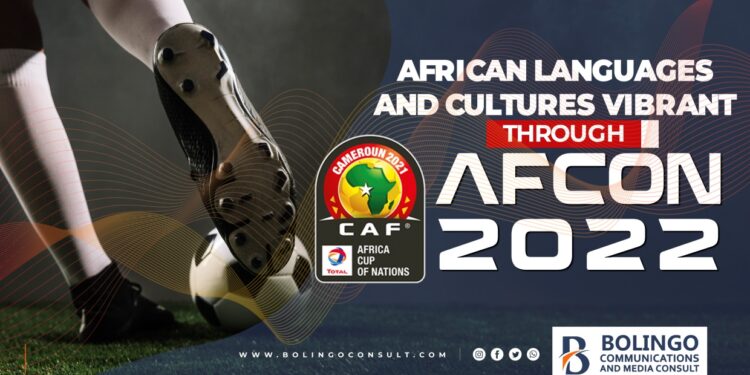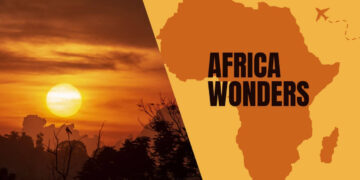Beyond a doubt, football is the most famed and acclaimed sport all over the world. In Africa one might say that it remains at the forefront of the cultural horizon. The Africa Cup of Nations (AFCON) tournament organized every two years since 1957 by the Confederation of African Football (CAF) stands out as the biggest sports event on the continent.
After being postponed to sidestep the adverse weather conditions of the rainy season, the AFCON was set in motion on January 9th 2022. The opening ceremony was held at the Olembe Stadium in Yaounde, where nearly 60,000 football supporters gathered to watch the kick-off between Burkina Faso and Cameroon. The game was won with two goals scored by the latter. Athletic performance aside, Cameroon deserves praise as the host country for the remarkable display of cultural heritage that unfolded.
Although the stadium’s capacity of 60,000 was capped at 60 to 80% of the capacity due to sanitary restrictions, the wide broadcasting of the event likely garnered millions of viewers.
With ever-bigger audiences, broadcasters have endeavored to broaden their linguistic offer of commentary for the event.

For the previous edition of AFCON, the BBC had increased coverage across different platforms to 13 different languages. In addition to coverage in English, French and Arabic, football fans were able to follow game commentary in Afrikaans, Afaan oromoo, Amharic, Gahuza, Hausa, Igbo, Yoruba, Pidgin, Somali and Swahili.
On the African front, StarTimes Uganda opted to add coverage in a number of local languages to the English commentary. The Ugandan branch of the broadcasting service provider picked 5 out of the 53 languages spoken in Uganda: Luganda, Luo, Lugbara, Runyoro-Rutooro and Kinyarwanda.
The bigger and more popular the African Cup grows, the greater the incentive becomes to offer commentary and coverage in a wide range of dialects. In fact, the characteristic multiculturalism that earned Cameroon the sobriquet of “Africa in miniature” was mirrored in the song “We Stand for Africa”. A track recorded in English, French and Arabic, produced by Cameroonian musician Salatiel with 24 artists from the 24 competing nations. Nothing could have better embodied the proud cultural diversity of the African continent.

From the vibrant colors of thematic scenes reminiscent of the continent’s luxurious natural vistas, to the paid tribute to artisanship with accessories made of cowry shells and colorful beads of various shapes and sizes, not forgetting homages to the fashion tradition with tailored costumes —ideal mix of bold creativity and love for tradition, the essence of Africa’s rich cultural legacy was represented in all its beauty.
While symbols of African culture and folklore abounded, complete with choreographies from dancers donning coordinated traditional attire, the closing ceremony to the 33rd Africa Cup of Nations also included performances from James BKS, Salatiel, Daphne, and Stanley Enow.
With the Senegalese team taking the trophy home for the first time, in more ways than one, all African people have won the invaluable prize of renewed pride through celebration of African culture.










